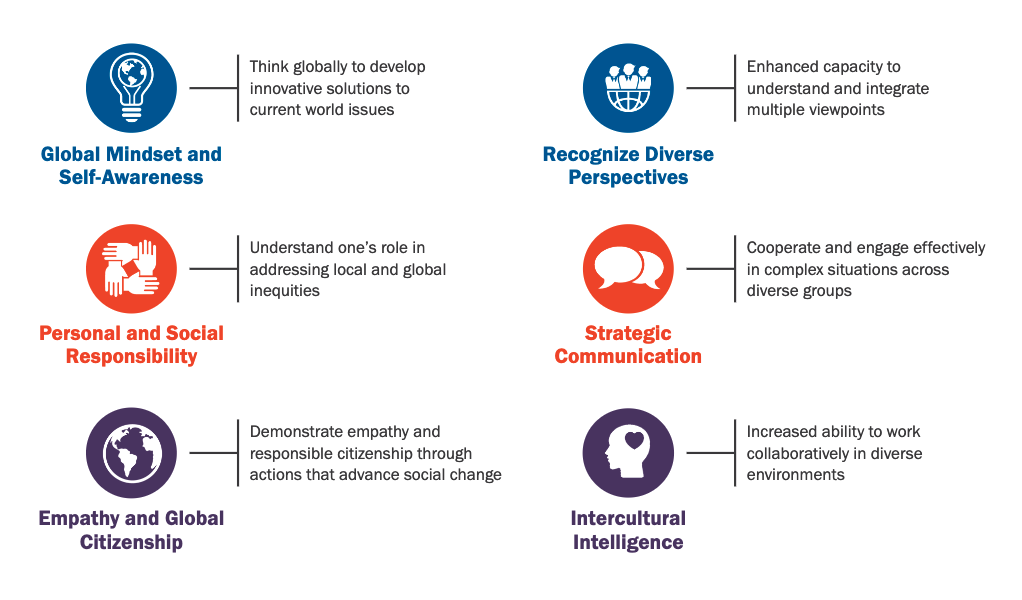Your program curriculum is designed to ensure graduates acquire the essential skills, knowledge, and attitudes appropriate and relevant to both the needs of students and employers.
Program Vocational Learning Outcomes
Program vocational learning outcomes describe what graduates of the program have demonstrated they can do with the knowledge and skills they have achieved during their studies. The outcomes are closely tied to the needs of the workplace. Through assessment (e.g., assignments and tests), students verify their ability to reliably perform these outcomes before graduating.
The Addiction and Mental Health Worker Program has 11 Program Learning Outcomes:
- Develop a plan to assist the client in achieving their goals for mental wellness and recovery from addictions.
- Integrate group work and group facilitation skills across a wide range of community service settings, supporting growth and development of individuals, families, and communities affected by addictions and mental health issues.
- Considersocial policy, legislation, and political, social, and economic systems and their impacts on service delivery in addiction and mental health services.
- Provide appropriate treatment and prevention strategiesto individuals and families impacted by addiction and mental health issues.
- Recognize diverse needs and experiences of individuals, groups, families, and communities todevelop and promote accessible and responsive programs and services.
- Respondaccordingly to clients in crisis to provide appropriate assistance and referral where necessary.
- Develop and maintain positive interprofessional collaboration and working relationships with colleagues, supervisors, and community partners that adhere to professional, legal and ethical standards.
- Advocateat a system-level for nonjudgmental acceptance and unconditional positive regard of individuals with addictions and mental health issues.
- Collaborate with indigenous peoples and their communities to identify and advocate for access to culturally appropriate resources to address addiction and mental health issues.
- Engage in critical self-reflection to support professional growth and lifelong learning.
- Reimagining the ways the sector engages with community members through the creation and collaboration of innovative organizational approaches.
These 11 Program Learning Outcomes are integrated into all aspects of the AMHW curriculum and model route.
Essential Employability Skills Outcomes
Essential Employable Skills (EES) are skills that, regardless of a student’s program or discipline, are critical for success in the workplace, in day-to-day living and for lifelong learning. Each course in the program addresses two to four EES outcomes. As a graduate of this program, you will reliably demonstrate the ability to:
- communicate clearly, concisely and correctly in the written, spoken, and visual form that fulfills the purpose and meets the needs of the audience.
- respond to written, spoken, or visual messages in a manner that ensures effective communication.
- execute mathematical operations accurately.
- apply a systematic approach to solve problems.
- use a variety of thinking skills to anticipate and solve problems.
- locate, select, organize, and document information using appropriate technology and information systems.
- analyze, evaluate, and apply relevant information from a variety of sources.
- show respect for the diverse opinions, values, belief systems, and contributions of others.
- interact with others in groups or teams in ways that contribute to effective working relationships and the achievement of goals.
- manage the use of time and other resources to complete projects.
- take responsibility for one’s own actions, decisions, and consequences.
Global Citizenship and Equity Learning Outcomes
There are six Global Citizenship and Equity (GCE) learning outcomes integrated into Diploma and Advanced Diploma programs as a component of Centennial’s Signature Learning Experience (SLE). The SLE reflects the College’s promise to provide students with a distinctive and inclusive educational experience that builds on a foundation of global citizenship, equity, and social justice. Certificate and Graduate Certificates also include at least two GCE learning outcomes. The GCE learning outcomes are:
- Identify one’s role and responsibilities as a global citizen in personal and professional life.
- Identify beliefs, values and behaviours that form individual and community identities and the basis for respectful relationships.
- Analyze issues of equity at the personal, professional, and global level.
- Analyze the use of the world’s resources to achieve sustainability and equitable distribution at the personal, professional, and global level.
- Identify and challenge unjust practices in local and global systems.
- Support personal and social responsibility initiatives at the local, national, and global level.
Global Citizenship and Equity Portfolio
As a component of the SLE, Diploma and Advanced Diploma program students will complete the Global Citizenship and Equity (GCE) Portfolio. Building the GCE Portfolio is a process of documenting your GCE learning. Each item selected for inclusion in the portfolio demonstrates growth and understanding of Global Citizenship and Equity within your program of study.

Students are encouraged to develop their GCE Portfolio beginning in their first semester. You will add artifacts from coursework and accompanying reflections as well as artifacts arising from co-curricular activities, volunteering, etc. to your portfolio as you progress through the program. You are encouraged to use the ePortfolio tools available on eCentennial, as well as to develop an online professional portfolio presence through LinkedIn and/or other personal websites/blogs.

